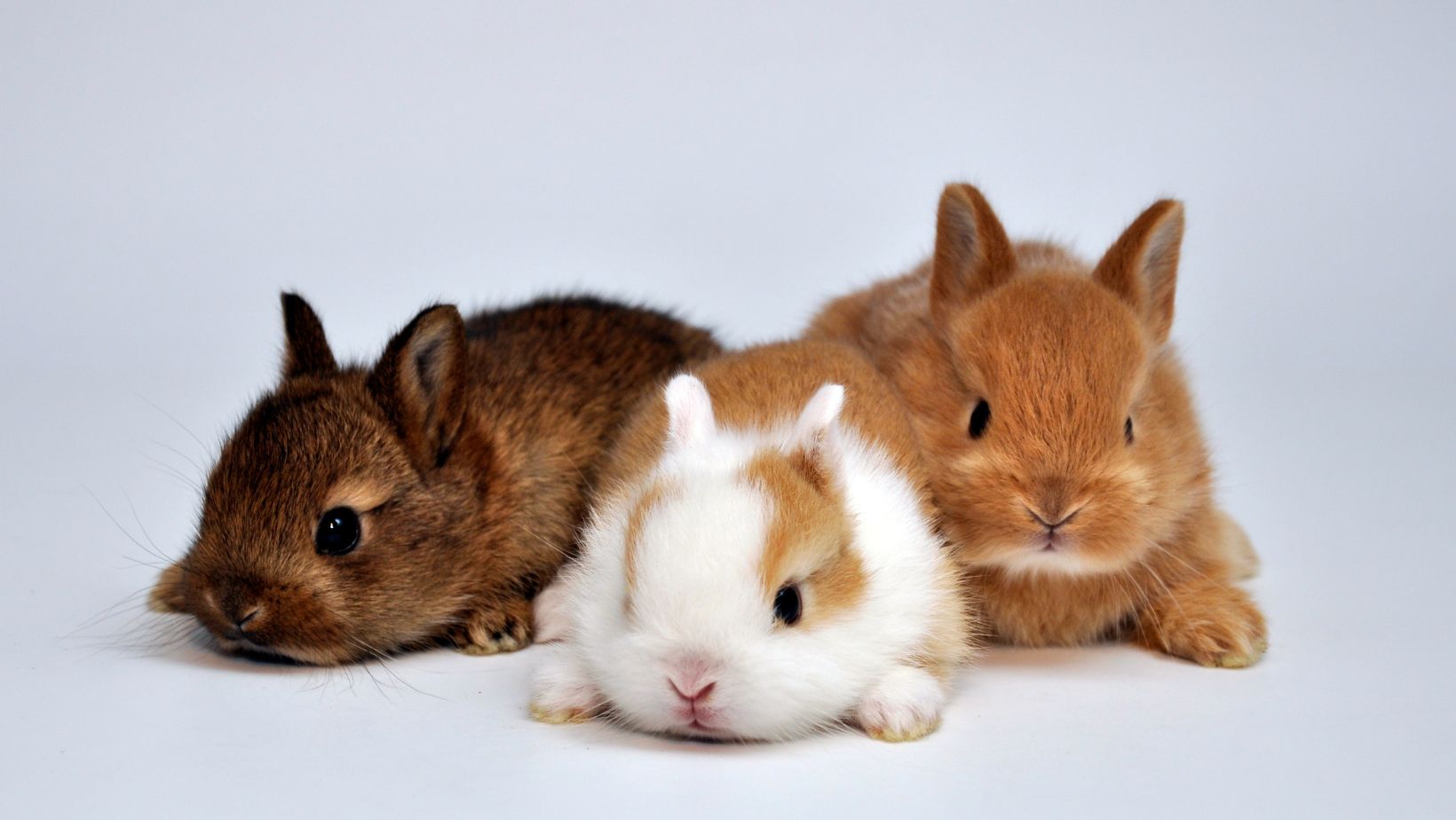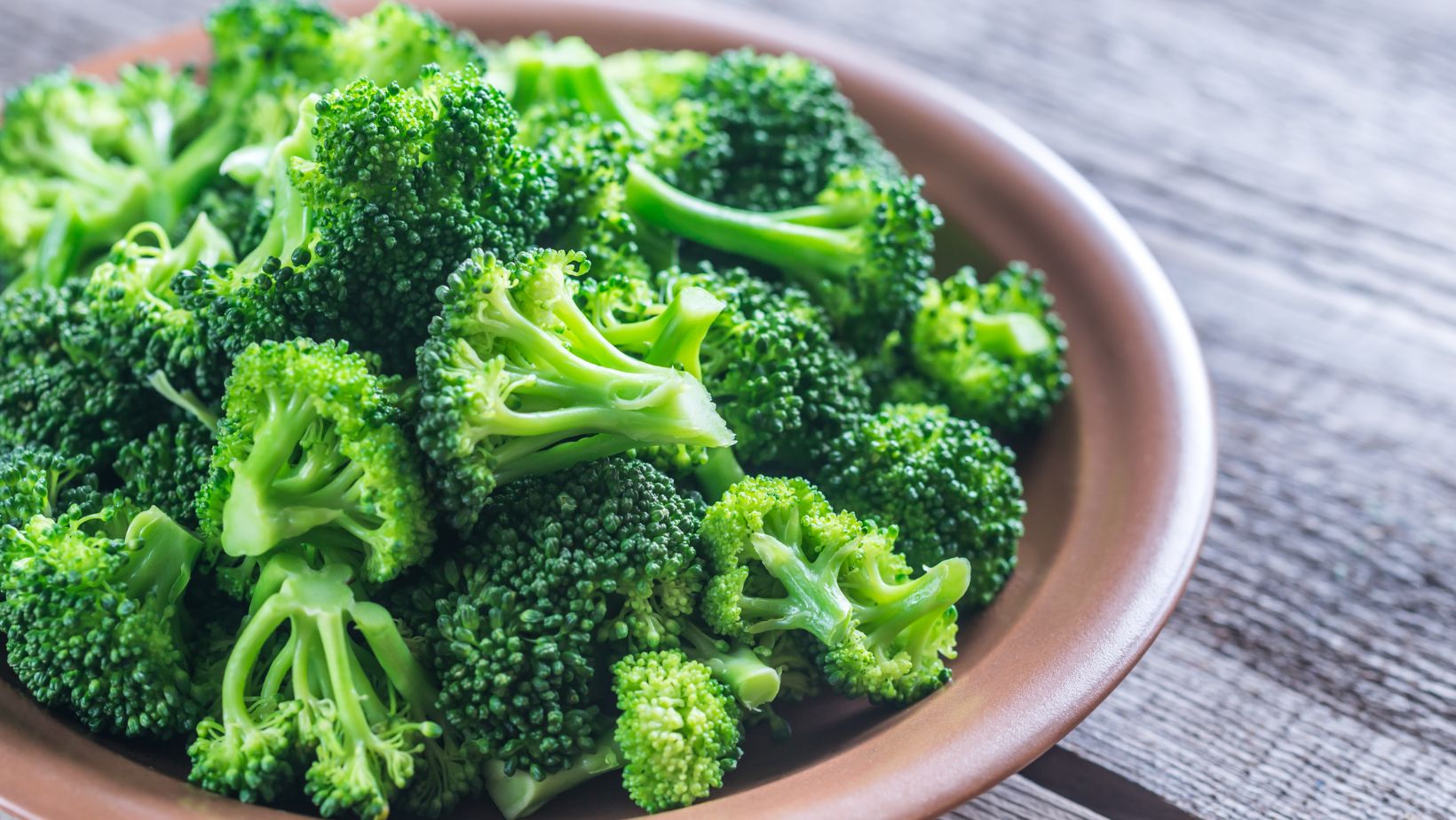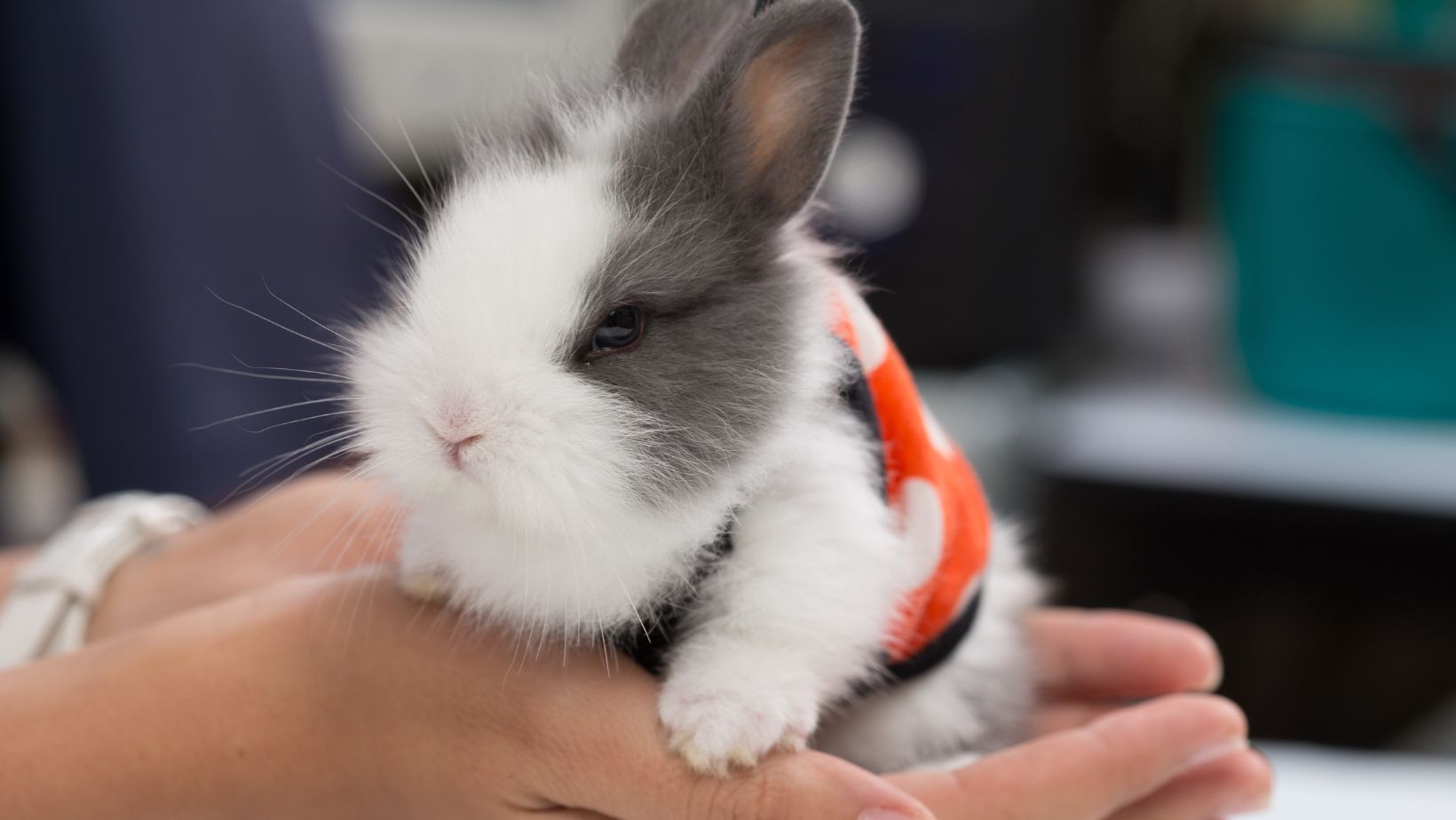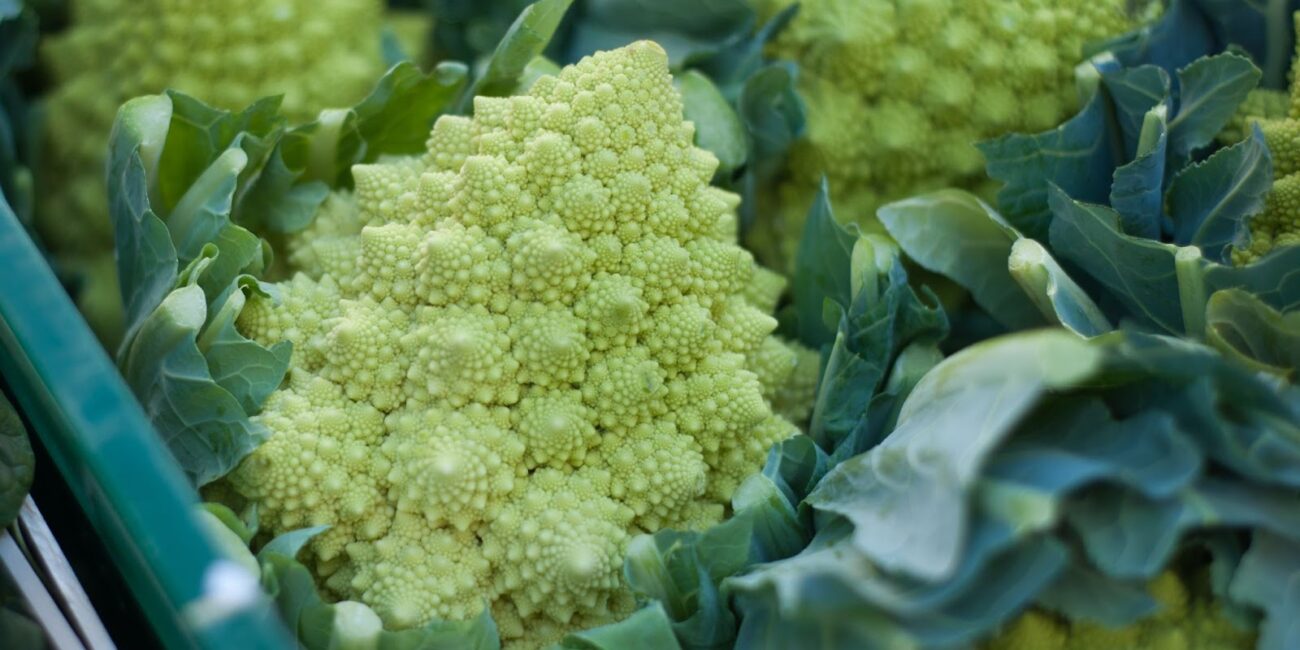To prepare your broccoli for bunnies, you need to know the right way of feeding it to them. In this article, we’ll give you an overview on feeding broccoli to bunnies, and explain the importance of feeding your rabbits the right food.
Overview on Feeding Broccoli to Bunnies
Feeding Greens to Bunnies Overview:
Bunnies thrive on a balanced diet consisting of hay, fresh veggies and water. When contemplating incorporating broccoli as part of their greens, it’s essential to note various aspects that may affect your bunny’s health positively or negatively.
- Broccoli has high calcium content which is crucial for bunny’s well-being in preventing teeth problems.
- It is also rich in vitamin A that supports proper sight function in bunnies.
- However, excessive intake of broccoli can lead to stomach upsets and diarrhea.
- Ensure to introduce it gradually with small portions first.
- Always opt for organic fresh broccoli instead of cooked; cooked vegetables lose their nutritional value and could be harmful.
- Lastly, monitor your bunny constantly for any odd behavior after introducing or adding greens.
It is vital to prioritize the Bunny’s welfare when introducing new foods into their diets. To avoid complications consult with an experienced vet before proceeding.
Did you know that rabbits have over 18 million scent receptors in their noses? This power sense helps them detect potential predators such as humans.
Feed your body junk food and it’ll treat you like a garbage can, but give it the right nutrients and it’ll thank you with a healthy existence.

Importance of Feeding Right Food
Feeding the appropriate nourishment is the key to maintaining a healthy lifestyle for your body. It is crucial to understand the significance of providing specially tailored meals that suit one’s macronutrient and micronutrient needs based on their age, gender, height, weight, and level of physical activity.
- Supply more energy: The right choice of food provides the required energy levels in your body to perform optimal levels throughout the day.
- Boosts Immune System: Nutritious food works wonders in fortifying immune systems against diseases and infections.
- Promotes Healthy Growth: Proper feeding habits are essential for growth and development, especially among infants, children and adolescents.
- Prevents Chronic Diseases: Eating a balanced diet reduces risks of certain chronic health conditions such as obesity, diabetes, cancer, heart diseases etc.
Notably, adopting poor feeding rituals can lead to adverse effects on bodily functions in the long run. Therefore it is imperative to consult a nutrition expert or doctor who will advise you according to your unique dietary demands and promote wellness practices.
Pro Tip: Include fermented foods such as yoghurt and kimchi in your meals daily as they contain beneficial bacteria that aid digestion.
Looks like the age-old question of whether bunnies can have broccoli has finally been answered: yes, but don’t be surprised when they start quoting Shakespeare and discussing particle physics.
Can Bunnies Have Broccoli?
To ensure your furry friend’s safety and well-being, it’s crucial to understand whether bunnies can have broccoli. In order to properly prepare broccoli for bunnies, we’ll explore the nutritional benefits of broccoli, as well as the potential risks associated with feeding broccoli.
Nutritional Benefits of Broccoli
Broccoli is an outstanding source of nutrition for rabbits due to its high nutrient content. This dark green vegetable contains a wealth of vitamins, minerals and fiber that can promote optimal health in rabbits.
The nutritional benefits of broccoli for rabbits are as follows:
- High in Vitamin C: Broccoli is an excellent source of this essential nutrient, which helps boost the immune system and improve overall health.
- Rich in Fiber: Fiber is crucial for maintaining proper digestive health in rabbits. Broccoli is packed with fiber, making it an excellent food choice for your pet.
- Low in Calories: While providing loads of nutrition, broccoli is low in calories compared to other rabbit foods. This makes it an ideal choice for weight management.
- Calcium and Phosphorus: Broccoli contains these essential minerals that can help keep bones strong and healthy.
- Antioxidant Properties: As a source of antioxidants, such as beta-carotene and lutein, broccoli can help to protect cells against damage from free radicals.
- Chlorophyll: The chlorophyll found in broccoli has been linked to several potential health benefits, including anti-inflammatory properties.
It’s important to note that while broccoli provides many nutritional benefits for rabbits, it should be fed in moderation. Too much broccoli can cause gas or diarrhea in some rabbits.
In addition to its nutritional benefits, it’s interesting to note that broccoli was first cultivated over 2,000 years ago by the Romans. It wasn’t until the early 1900s that it gained popularity and became a commonly used vegetable worldwide.
Eating broccoli may be healthy for humans, but for bunnies, it’s a risky game of gastrointestinal roulette.
Risks Associated with Feeding Broccoli
Broccoli is a common vegetable served to bunnies, but it can pose risks to their health if not fed properly. Excessive intake of broccoli, particularly the stalks and leaves, may lead to digestive issues like bloating and gas. Moreover, the oxalic acid found in broccoli inhibits calcium absorption, a crucial mineral for bunnies. This limits bone health and often leads to osteoporosis.
It is recommended that bunny owners should exercise caution while feeding broccoli. Especially in baby bunnies or ones with sensitive digestive systems as it may cause further complications. Mixing small portions of other leafy vegetables, like kale or spinach, with broccoli can help balance the diet.
Bunny owners must be aware that broccoli possesses healthy nutrients such as fiber and vitamins essential for a bunny’s well-being with proper ration measured per pound ideal weight of an adult bunny per day (2-3 cups). An imbalanced diet could lead to severe health consequences.
Who knew preparing broccoli for bunnies could be the closest thing to a horror movie for vegetarians?
Preparing Broccoli for Bunnies
To prepare broccoli for your bunnies, optimal steps must be taken to ensure their safety. With “Preparing broccoli for bunnies” as your guide, you’ll learn special techniques to serve fresh and delicious broccoli to your pets. Learn about the best selection of fresh broccoli, cleaning methods, and cooking techniques for broccoli.

Selection of Fresh Broccoli
When choosing fresh broccoli for your bunnies, there are a few things to keep in mind:
- Look for broccoli with a vibrant green color and firm stalks.
- Choose broccoli with tightly packed florets that are free from yellowing or wilting.
- Finally, avoid any broccoli that looks limp or has a strong odor as these indicate decay.
It is important to note where the broccoli comes from to avoid any contamination present in some areas. It is suggested sourcing it locally whenever possible.
To ensure the safety of your bunnies’ digestive system’s health, wash the vegetables thoroughly using cold water before serving them.
Offering fresh broccoli as part of your bunny’s diet can provide many essential nutrients and minerals that support overall physical health and mental well-being. Also, including it in small amounts and gradually increasing servings aids any potential digestive problems.
Cleaning broccoli is like trying to convince a toddler to take a bath – they’ll resist until they realize it’s for their own good.
Cleaning Broccoli
When it comes to preparing broccoli for your bunny, it’s crucial to start by ensuring it’s free from any dirt or residue.
Here’s a simple guide that can help you get started with cleaning broccoli:
- Begin by running the broccoli under cold water to remove any surface-level dirt and debris.
- Cut the bottom inch of the stem off and peel the outer layer of the stem if it appears tough or dry.
- Cut off any remaining leaves and trim off any brown spots or discolored areas on the florets.
- Soak the broccoli in a bowl filled with cool water for about 15 minutes, allowing any remaining dirt or debris to settle at the bottom of the bowl.
- Finally, rinse the broccoli once again under cool water, ensuring all traces of dirt are removed before serving it to your bunny.
It’s worth noting that when cleaning broccoli for bunnies, you should avoid using any chemicals as they can be potentially harmful to your furry friend. Additionally, always ensure that your bunny has access to fresh clean water alongside their meals.
One day my friend had bought some fresh broccoli from the market for her bunny but didn’t realize there was still dirt on it until after feeding her bunny. The following day, Bunny seemed not to enjoy her meal and was less active than usual. My friend quickly realized what could have been causing this sudden change in behavior and quickly cleaned up all their serving plates before cleaning Bunny’s enclosure as well. Since then she never underestimated how important it is to properly clean bunny vegetables.
Get ready to steam some broccoli like you’ve never steamed before, because these bunnies are about to have a veggie feast!
Cooking Techniques for Broccoli
Broccoli Preparation Techniques for Your Bunnies
When it comes to preparing broccoli for your bunnies, there are certain cooking techniques that you should follow. These techniques will ensure that your bunnies receive all the nutrients from the vegetable in a way that they can easily digest.
Here is a simple 3-step guide on how to prepare broccoli for your bunnies:
- Cut the broccoli into small pieces, ensuring there are no large stem pieces.
- Blanch the broccoli in boiling water for 1-2 minutes and immediately transfer them to ice water to stop the cooking process.
- Drain and serve with their regular diet.
It is important to note that feeding too much broccoli at once can lead to digestive problems among bunnies. Also, do not add any salt or seasonings while cooking as these can be harmful to your pets.
To make sure your bunnies receive all the essential nutrients from this nutrient-rich vegetable, offer them only fresh, uncooked veggies sparingly.
Make sure you incorporate these tips for preparing broccoli for your bunnies next time and watch them munch on this healthy vegetable! Your furry pets need proper nutrition too!
Why should humans have all the fun of eating rabbit food?
Can Bunnies Have Broccoli
To serve broccoli to your bunny, you need to know the recommended portions, how often to feed it, and how to monitor your bunny’s health afterwards. In this part, we will be discussing the different ways to serve broccoli for bunnies and the sub-sections which will guide you on how to serve broccoli in a healthy and safe manner.
Recommended Serving Portions
Recommended serving sizes for rabbits’ daily vegetable intake vary based on their weight and health status. It is crucial to provide a balanced diet with suitable portion control to prevent digestive problems and obesity that can lead to life-threatening conditions.
- Provide approximately one cup of fresh vegetables per two pounds of body weight, spread throughout the day.
- Introduce new vegetables gradually in small portions, especially with rabbits under six months old.
- Supplement their diet with fresh hay, water and limited amounts of pellets.
- Avoid starchy vegetables like potatoes, and limit fruit intake due to high sugar content.
- Consult with a veterinarian or animal nutritionist for specific dietary requirements or restrictions.
To ensure your bunny’s optimal nutrition, always choose fresh organic produce over canned or processed food, as the latter often contain preservatives and additives that can be harmful to your pet.
Fun fact: Wild rabbits predominantly eat grass, but domesticated bunnies are commonly fed a balanced combination of hay, veggies, and pellets. (Source: House Rabbit Society)
Feeding broccoli to bunnies should be done in moderation, unless you want your furry friend to become a gas factory.
Frequency of Feeding Broccoli
Broccoli is a great vegetable for bunnies, but how often should it be given to them? To maintain their health, it’s important to regulate the frequency of feeding broccoli.
- Broccoli can be given to bunnies as a treat or in moderation as part of their diet.
- It’s recommended to feed broccoli no more than twice a week.
- Overfeeding broccoli can lead to digestive problems and bloating in rabbits.
- Bunnies should have unlimited access to hay and water throughout the day.
It’s crucial to keep their diets balanced and varied, incorporating other vegetables that are safe for their digestion.
Interestingly, some bunnies may develop an aversion to this healthy vegetable due to its taste and smell. Therefore, introducing it gradually into their diets could prevent them from rejecting it completely.
I had a bunny who loved broccoli so much that whenever he saw me with a serving of it, he would start jumping around excitedly. However, I once fed him too much broccoli at once, and his tummy became visibly swollen. It was then that I learned the importance of regulating the frequency and amount of certain vegetables in his diet.
Looks like these bunnies are in for a gassy surprise, let’s hope their health monitoring doesn’t involve a nose plug.
Monitoring Bunny’s Health After Feeding Broccoli
Bunnies are delicate animals, and it is essential to pay close attention to their health after serving broccoli. As an alternative to carrots, giving Bunnies vegetables like broccoli that are low in calories is healthy, but it should be done with utmost caution.
Since broccoli has fibrous stems and florets that take time to digest, monitoring a bunny’s intake quantity and bowel movements afterward can help prevent digestive issues. Insufficient fiber intake from excessive vegetable consumption can lead to diarrhea. So, offering suitable amounts of hay as well as constant access to water can alleviate any concerns.
In contrast, a strict diet of broccoli may cause nutritional imbalances in Bunnies. Instead, it should be considered a supplement rather than the main dish. As an owner, keeping track of digestive symptoms such as bloating or lethargy for at least two weeks may help identify overfeeding problems.
A report published by The American Society for the Prevention of Cruelty to Animals concludes that Bunnies enjoy food grains that are rich in vitamins like fiber and minerals such as protein. However, serving them these foods in moderation ensures overall well-being.
Carrots may be the go-to bunny food, but let’s not forget about the other veggies that can also ruin their day.
Alternatives to Broccoli for Bunnies
To provide your bunnies a range of nutritious and satisfying bunny-friendly vegetables, in order to increase their appetite and cognitive development, let us introduce you to the Alternatives to broccoli for bunnies, with the two sub-sections – List of bunny-friendly vegetables and Tips for introducing new food to bunnies.
List of Bunny-Friendly Vegetables
Bunnies are herbivorous animals and rely on vegetables as their primary diet. Hence, a list of bunny-friendly vegetables is significant for pet owners to know. Below are some tasty options that can replace broccoli in a rabbit’s meal plan.
- Leafy greens such as kale, spinach, and lettuce.
- Cruciferous vegetables like cauliflower and cabbage.
- Root vegetables like carrots and parsnips.
- Herbs like basil, parsley, and dill.
- Fruits like apples, strawberries and blueberries can be used as treats in moderation.
It is important to remember that any vegetable should be introduced gradually to avoid digestive issues or diarrhea. Moreover, rabbits should not consume high amounts of fruits due to their sugar content.
For instance, one bunny owner switched their rabbit’s diet from only carrots to a variety of bunny-friendly vegetables. This change not only improved the rabbit’s health but also made their meals more enjoyable.
Introducing new food to bunnies is like playing Russian roulette, but with vegetables instead of bullets.

Tips for Introducing New Food to Bunnies
Introducing novel edibles to bunnies can be daunting, especially if they have a frail digestive system. Here are some tips for safely testing new foods with your furry friends:
- Begin with small servings to notice any adverse reactions
- Add one item at a time to figure out which ones suit their palate
- Gradually increase the quantity of newly introduced food over several days
Remember that rabbits might reject anything unfamiliar at first and patience is vital. In addition to introducing new foods, it’s crucial to know which foods rabbits cannot eat such as avocado and chocolate.
Did you know that wild rabbits tend to explore around their habitat for nutrition? They do this through trial and error until they find the right balance of nutrients they need for maintaining excellent health!
Sorry broccoli, but these bunnies have found greener pastures to hop to.



